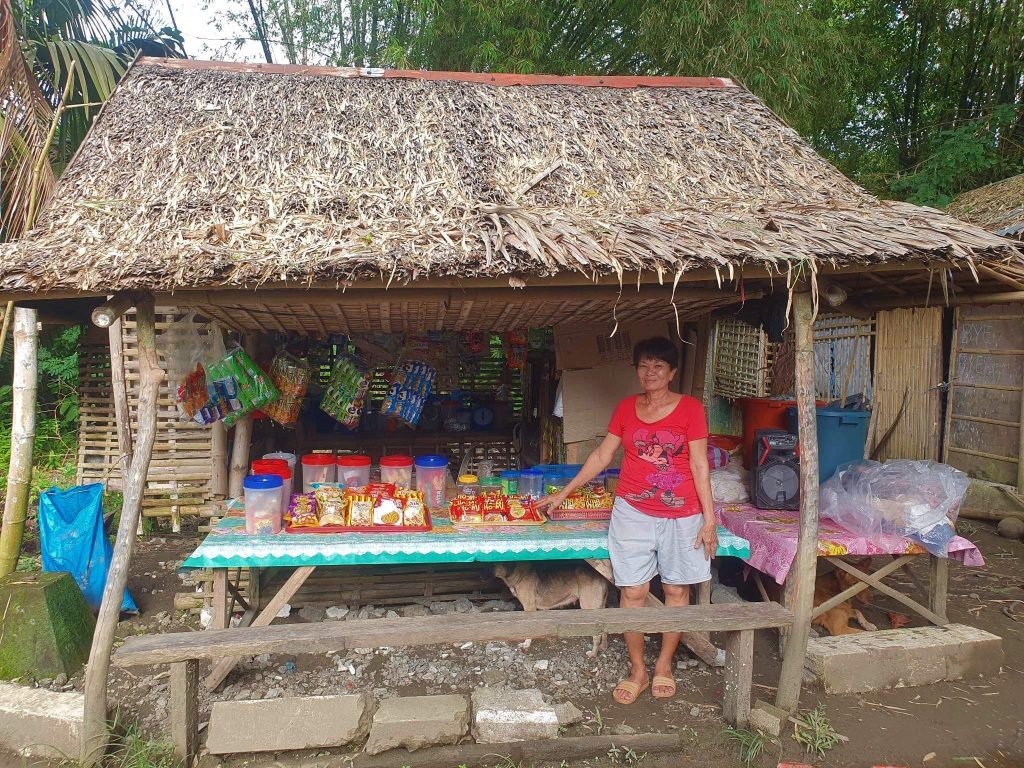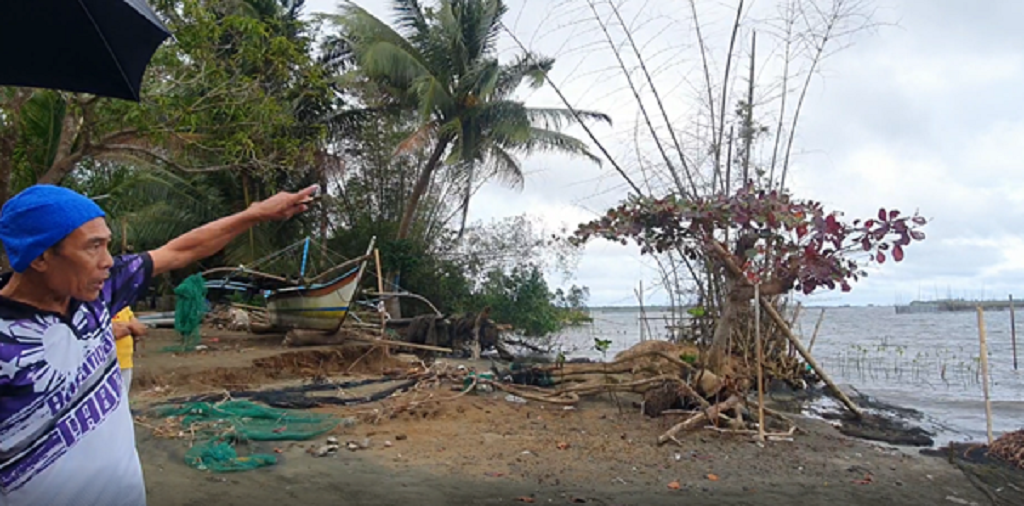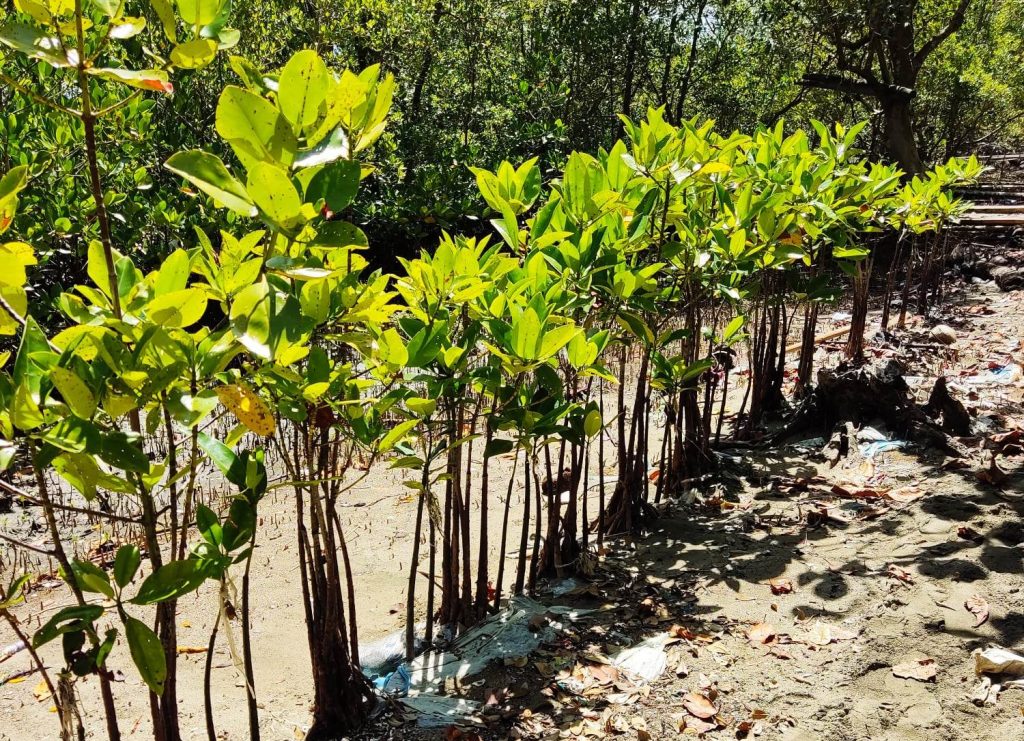Because of his age, Wilson had to spend the community lockdown alone. He says the time was very difficult but he learned to focus on his planting instead. Photos: CWS/Kathlene Soo.
Plants Give Joy and Security
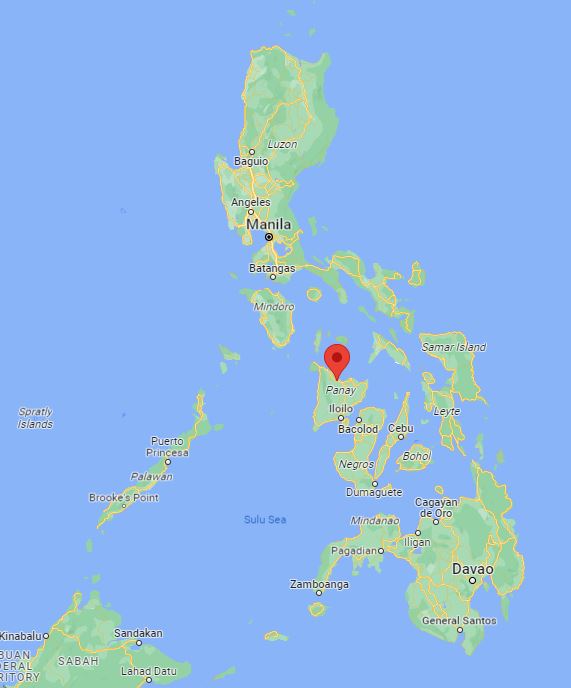
Tabon Island faces the Sibuyan Sea. It is located near the entrance of Tinagong Dabat, a bay in the Aklan province.
Tabon Island is disappearing. It was once part of a rich fishing zone in the province of Aklan in the Philippines. Many people depended on fishing for their livelihoods but like most places there are not enough fish to go around. Many of the mangroves that provided fertile breeding grounds have gone, leaving the land around the bay more vulnerable to large waves, sea surges and severe typhoons as well. Some coastal homes and buildings are now underwater.
Communities that nestle in the low-lying coastal areas are preparing for an uncertain future. They want to replace the mangroves that have been cut down. Small farmers are finding new ways to grow food crops above salty ground. Local people want to change the climate story to protect the coast and fish habitats. They are determined to create lasting hope and make provision for the future.
At almost 80, Wilson has a warm and welcoming smile on his face. Once a hardworking fisherman, he has turned into a busy gardener. He lives close to his children who are small-scale fish vendors.
“I used to rely on my children for sustenance – especially for money and cooked food,” he says. Wilson was persuaded by the team from our local partner to grow his own food. He joined the first Planting Drive Developers organised for the Tabon community.
“I joined the planting drive because I didn’t want to depend entirely on my children for financial support. They don’t earn that much really, and I didn’t want to give them an extra burden. I also wanted to eat healthy foods that don’t contain chemicals. Likewise, I wanted to stay active to keep myself strong and vibrant. I realised that the land outside my house was vacant and good for planting,” he adds.
In the Philippines, people over 65 years old had to stay at home during the lockdowns. According to Wilson, it was very boring and lonely. Fortunately he could focus on his garden and the results are clearly visible. He wakes up early to work in his garden before it gets too hot. In the first planting drive he tried a few banana and coconut trees and vegetables: water spinach, eggplant, cassava, papaya, okra, chili, string beans, and bok choy.
“Gardening is a form of exercise. Plants also give me joy, relaxation, and inspiration,” says Wilson.
Because of his skill, he has been chosen to take part in the expanded Family Food Garden Project and will encourage others to follow suit. He wants to grow more food to help feed his family and be prepared for the economic challenges ahead.
Elenda used a small loan from the Revolving Loan Fund to start a sari-sari store. She sells snacks like fried bananas as well as fruit and vegetables purchased from other growers. During the pandemic, her daughter Regina returned to Tabon with her family. Regina now has her own garden and sells food from her mother’s store. She is teaching her own children to garden and feeding them more nutritious food.
A local man says people lived on this land until a few years ago. Now it is covered by water and the trees are dead. Every year they are losing a metre or more of land on this coast.
More Mangroves
In 2015, our supporters, including St Margaret’s Presbyterian Church Silverstream, donated enough funds to plant 1 hectare of mangrove trees on Tabon Island. At low tide, the local people collected the propagules produced by the mature trees. The team planted the propagules, and the trees grew. The local barangay or council took over the maintenance, protecting the young plants from debris. Eight years later, Developers reports 99% of the trees are flourishing.
Mangroves grow 6 – 25 metres high. Their shallow roots spread five times the width of the canopy, collecting sediment and silt as well as providing habitat for fish, crabs and other aquatic life. The trees prevent erosion and provide a barrier against large waves, storm surges and salt water, especially during severe typhoons. The wood can be used to build boats and homes. Mangroves are a useful form of carbon offsetting.
The people of Tabon Island want to plant two more hectares of mangroves and build a seawall to protect their shrinking coastline.
Read Wilson’s story as a PDF.
Please support the Autumn Appeal for Family Food Gardens.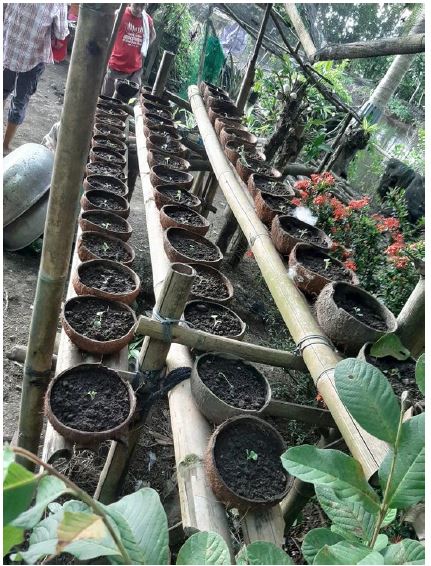
$31 could pay for one person to attend the Family Food Project training
$60 could pay for food plants and trees
$118 could pay for 100 food plants, tools and planting materials for a family
$1,293 could pay for a revolving loan fund so people can borrow small amounts of money for 3 months and invest in their businesses.
Your support for our Autumn Appeal for Family Food Gardens is an investment in the future. Families will be better prepared for times when the fish catch is small or disaster strikes. With a $70 loan from the revolving loan fund, selected individuals will be able to purchase chickens, tools or other equipment to improve their livelihoods. Planting more food is better than money in the bank for the people most vulnerable to the effects of climate change.

